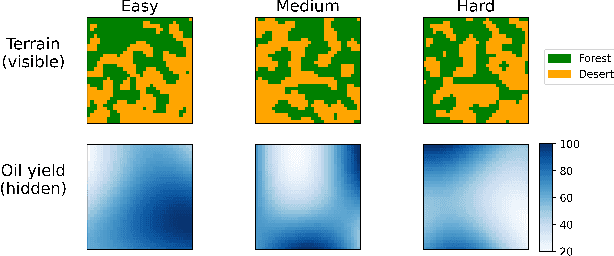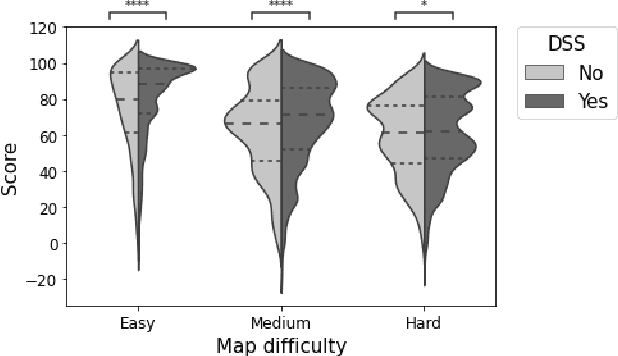Manuel Portela
Human Response to an AI-Based Decision Support System: A User Study on the Effects of Accuracy and Bias
Mar 24, 2022



Abstract:Artificial Intelligence (AI) is increasingly used to build Decision Support Systems (DSS) across many domains. This paper describes a series of experiments designed to observe human response to different characteristics of a DSS such as accuracy and bias, particularly the extent to which participants rely on the DSS, and the performance they achieve. In our experiments, participants play a simple online game inspired by so-called "wildcat" (i.e., exploratory) drilling for oil. The landscape has two layers: a visible layer describing the costs (terrain), and a hidden layer describing the reward (oil yield). Participants in the control group play the game without receiving any assistance, while in treatment groups they are assisted by a DSS suggesting places to drill. For certain treatments, the DSS does not consider costs, but only rewards, which introduces a bias that is observable by users. Between subjects, we vary the accuracy and bias of the DSS, and observe the participants' total score, time to completion, the extent to which they follow or ignore suggestions. We also measure the acceptability of the DSS in an exit survey. Our results show that participants tend to score better with the DSS, that the score increase is due to users following the DSS advice, and related to the difficulty of the game and the accuracy of the DSS. We observe that this setting elicits mostly rational behavior from participants, who place a moderate amount of trust in the DSS and show neither algorithmic aversion (under-reliance) nor automation bias (over-reliance).However, their stated willingness to accept the DSS in the exit survey seems less sensitive to the accuracy of the DSS than their behavior, suggesting that users are only partially aware of the (lack of) accuracy of the DSS.
 Add to Chrome
Add to Chrome Add to Firefox
Add to Firefox Add to Edge
Add to Edge